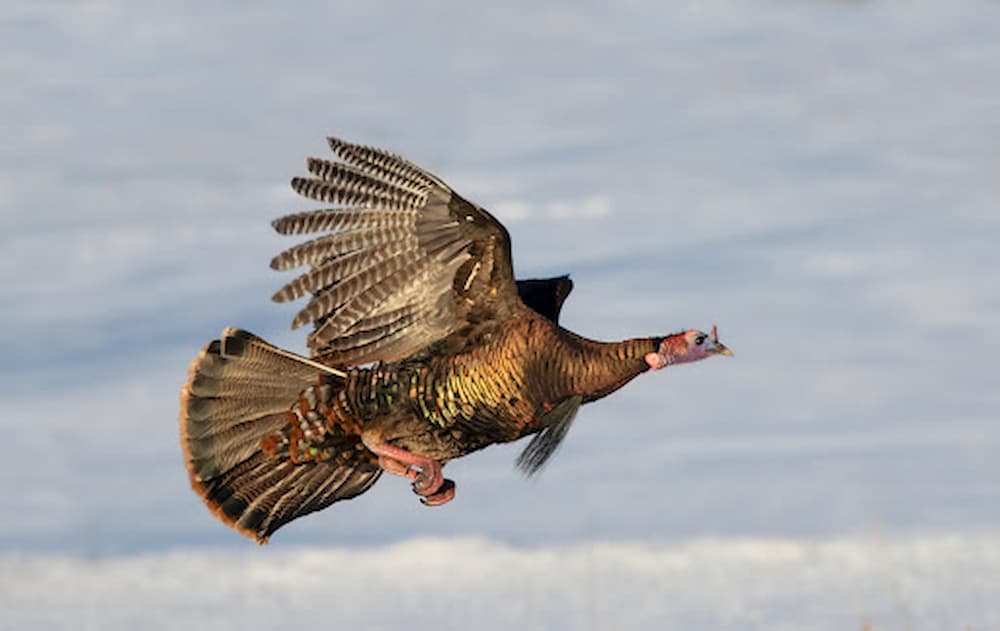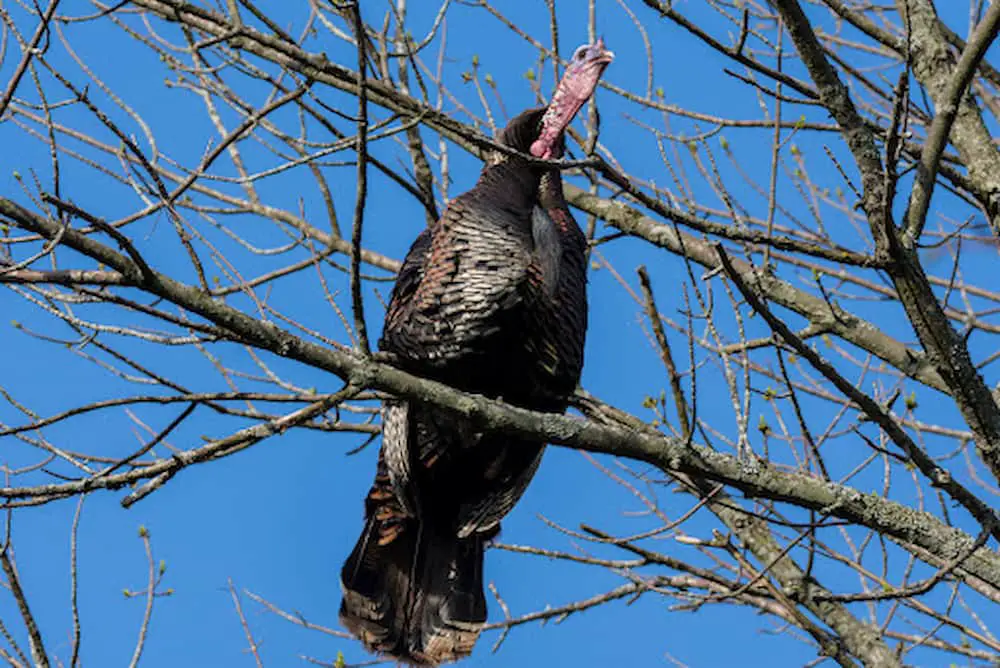Every year, as soon as Thanksgiving rolls around, everyone suddenly becomes curious about turkeys. One thing people wonder about is if turkeys sleep in trees. Is this a myth or a fact? Do turkeys only sleep in trees? When exactly do they sleep?
Wild turkeys do technically sleep in trees — for the most part. This fact may come as a surprise, as turkeys are large, heavy birds that are notoriously flightless. Aren’t they?
The follow-up question is, “How do turkeys get up trees?” The answer may surprise you.

Turkeys Can Fly
All About Birds describes turkey sleeping habits by explaining that turkeys fly into the lower limbs of trees at sundown and move from branch to branch to a higher roost spot.
Learn how to raise your own quail and have an unlimited supply of eggs and meat.
This debunks the most common myth about turkeys, which is that they can’t fly. Turkeys can fly, albeit in short bursts, and have been recorded flying at 40 to 50 miles per hour! Their breasts, the muscle needed for flight, can handle rapid but short flights, as turkeys only fly when they’re in danger. Turkeys rarely fly more than 100 yards and generally only fly to reach safety.
Turkeys typically only fly up trees at night for sleep — they spend the rest of the time on the ground. After a good night’s rest, turkeys wake up and call to one another to make sure that everyone is okay. Then, they descend from the trees and continue their day on the ground.
Why Do Turkeys Sleep In Trees?
The main reason turkeys sleep in trees is to hide from predators. A wild turkey’s natural predators include:

- Coyotes
- Snakes
- Foxes
None of these animals are in the habit of climbing trees, making a roost tree a safe space for turkeys at night.
Turkeys are built for the day as they can’t see very well in the dark, so they don’t stand too much of a chance if a predator finds them in the middle of the night. Roosting turkeys rely on tree branches to shield them from predators and make them inconspicuous to get a good night’s rest.

Exceptions
Despite all of this new information, it’s important to note that not all turkeys always sleep in trees. In particular, nesting hens sitting on turkey eggs and hens with a very young turkey poult who cannot yet fly will usually spend the night on the ground with their little ones.
A nesting turkey may spend up to 28 days waiting for their little ones to hatch, and then it can take up to another two weeks for those new hatchlings to be able to fly and join the others in the trees at night.
Unfortunately, this is the time that turkeys are most vulnerable to predators, which is why female turkeys have shorter lifespans than male turkeys.
That said, at all other times, males, females, and young poults, once they learn how to fly, go up into trees to sleep.
Another thing to know is that this applies primarily to wild turkeys. Domestic turkeys in captivity are usually bigger as they are bred for consumption and therefore have a little more trouble flying than their smaller, wild counterparts. Domesticated turkeys also typically don’t sleep in trees; in captivity, there usually aren’t any natural predators to threaten them.
Conclusion: Do Turkeys Sleep In Trees?
The short answer to the question “do turkeys sleep in trees” is yes. Despite being thought of as flightless birds, wild turkeys can, indeed, fly — although they won’t get very far.
A domesticated turkey is less likely to fly and is less likely to sleep in trees than a wild turkey due to a lack of predators. However, if they were nearby a tree, that natural instinct would still probably kick in, and they’d opt to cozy up in a roost tree for the night.

